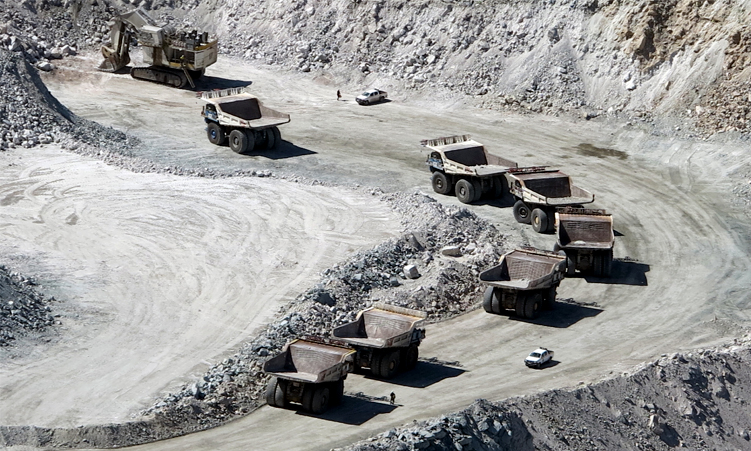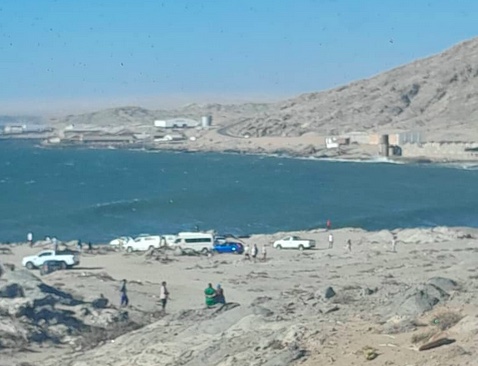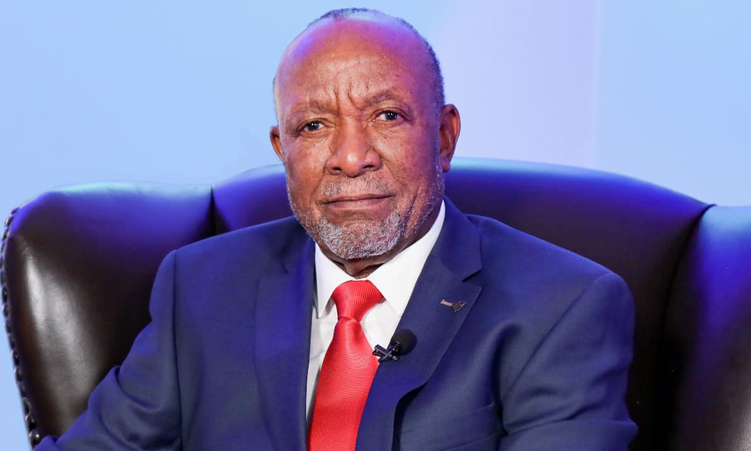Rössing Uranium Mine is offering its employees voluntary separation packages, starting from this year until the end of 2026.
The news of voluntary separation at the mine comes a day after The Namibian reported on possible job losses at the Etosha Fishing factory at Walvis Bay.
Rössing’s managing director, Johan Coetzee, confirmed the separation plan to The Namibian on Monday.
On 22 February, the Rössing board announced the life of mine extension for 10 years, until the end of 2036.
However, Coetzee said the recommended operating model will impact some of the employees’ roles after 2027.
“Life of mine extension does not guarantee the continuation of all current jobs beyond 2026, as the operating model and workforce structure required for life of could extension is different,” he said.
Alternatively, the mine will close at the end of 2026, which will impact all employees.
The current model will mainly affect the mining department, which employs close to 400 workers. The work will be contracted to a second party.
The Namibian learnt that the decision would not affect geologists, surveyors and mining engineers.
Coetzee explained that the contractor mining solution for the extension is regarded as the most appropriate based on the most resilient financial option and is the only non-value destructive option.
“The transition plan created for the voluntary separation programme is aimed at mitigating the impact on potential forced retrenchments post-2027 by affording every impacted employee the opportunity to benefit from the voluntary separation package offered by the company while pursuing other employment opportunities,” he said.
Coetzee added that by way of this method, employment and other macroeconomic benefits will continue to exist at Rössing beyond 2026.
Sources at Rössing told The Namibian that they were informed that the salary bill is one of the reasons the mine took the voluntary separation route.
“It has nothing to do with the life of mine, but more on pushing people out so that they cut on the housing allowance and medical aid not offered by contractors,” said the sources.
The sources further claim that the mining operations will be given to a Chinese contractor, Beifang Namibia.
The Mineworkers Union of Namibia (MUN) expressed dissatisfaction with how Rössing, of which the majority shareholder is the China National Uranium Corporation limited (CNUC), handles the issue of the life of mine extension.
The union’s western regional coordinator George Ampweya believes the decision was unilaterally made by the company without engaging the union as per agreements.
“This is clear that the new capitalist CNUC majority shareholder is opting for exploiting Namibians through the draconian contract labour system that we fought during and after independence. How could permanent employment roles be outsourced?”
Ampweya fears that if by 2026 the voluntary separation plan has not worked out, Rössing would initiate the forced retrenchment process that would ultimately see the envisaged 400 employees directly losing their jobs.
The MUN now demands that the mine immediately stop the voluntary separation process implementation if the union is not involved.
“We further demand an audience with the senior management of CNUC, with the view of ascertaining that if indeed Rössing intends to initiate retrenchments, it should do so in line with set procedures as outlined in the Labour Act and all existing relevant collective agreements in place,” said Ampweya.
Stay informed with The Namibian – your source for credible journalism. Get in-depth reporting and opinions for
only N$85 a month. Invest in journalism, invest in democracy –
Subscribe Now!







